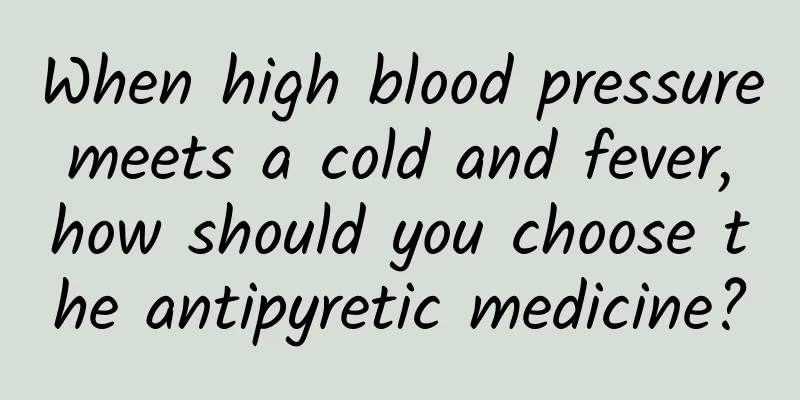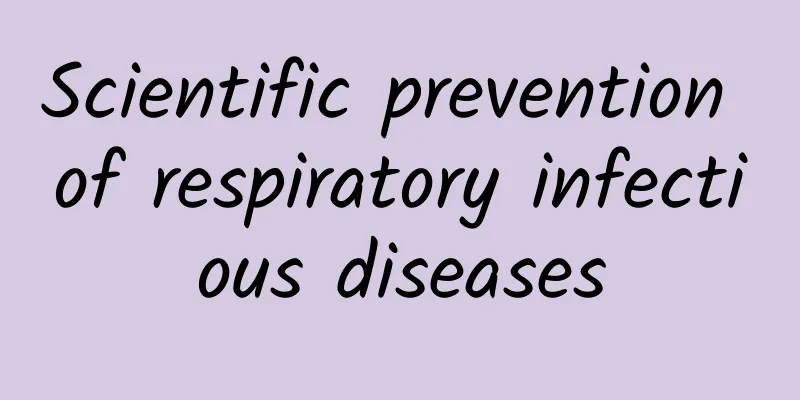When high blood pressure meets a cold and fever, how should you choose the antipyretic medicine?

|
Spring is approaching, and the temperature difference between day and night is large. This is the season when respiratory diseases are prevalent. After catching a cold, many people will inevitably have a fever. Common antipyretics such as ibuprofen, acetaminophen, aspirin, etc. have the risk of causing high blood pressure. So, what should hypertensive patients do after having a fever? Is there no medicine to take? I believe that many hypertensive patients have such doubts and concerns. I have a fever. When should I take medicine? First of all, it is not necessary to take medicine immediately when you have a fever. It is usually recommended to take medicine only when the body temperature reaches 38.5℃ or above. If the body temperature is <38.5℃, it is generally not necessary to treat it. If you really feel uncomfortable, you can use physical cooling. You can use a fever patch or a cold towel to apply to the forehead, or use alcohol to wipe the armpits, elbows, carotid arteries, forehead, inner wrists and thigh roots and other superficial blood vessels to achieve a cooling effect. If the body temperature is ≥38.5℃, you can use antipyretics for fever and analgesia. When using antipyretics, you do not need to take them regularly, but take them on demand. You can stop taking the medicine when the body temperature drops below 38.5℃. It should be noted that antipyretics should be taken in strict accordance with the instructions. They should not be mixed, nor should they be used frequently or taken too much at one time in order to achieve the purpose of reducing fever as quickly as possible. When using compound preparations, read the instructions carefully, pay attention to the composition, and avoid repeated use of the medicine. When a patient with hypertension catches a cold and has a fever, how should he choose antipyretic medicine? At present, the commonly used antipyretics in clinical practice are mainly non-steroidal anti-inflammatory drugs (NSAIDs), including ibuprofen, acetaminophen, aspirin, indomethacin, naproxen, loxoprofen, nimesulide, diclofenac sodium, meloxicam, celecoxib, etc. Since long-term use of NSAIDs can easily aggravate water and sodium retention, thereby causing continued increase in blood pressure, patients with hypertension should try to avoid using NSAIDs. NSAIDs can weaken the effect of all antihypertensive drugs, except calcium channel blockers (CCBs). Therefore, if the antihypertensive drug a patient takes is a CCB (such as amlodipine, nifedipine, etc.), it will be less affected by NSAIDs. If it is only used for short-term analgesia and fever reduction in small doses, such as after infection with the new coronavirus, the risk of NSAIDs causing high blood pressure is not serious, but it is best to use celecoxib, which has a lower risk of raising blood pressure, with a maximum dose of 200 mg once a day, or naproxen, with a maximum dose of 500 mg twice a day. At the same time, blood pressure should be closely monitored during medication, and attention should be paid to quitting smoking and limiting alcohol intake, as well as limiting sodium salt intake. Can antihypertensive drugs and antipyretic drugs be taken together? Hypertension medication is generally taken on an empty stomach in the morning, while antipyretic drugs are mostly irritating to the stomach and are recommended to be taken half an hour after a meal (appropriately staggered with the time of hypertensive medication) to avoid interactions. Hypertension is a common chronic disease. If it is not well controlled for a long time, it can easily lead to damage to the human immune system and increase the risk of infection with COVID-19. Therefore, patients with mild COVID-19 hypertension should pay attention to changes in blood pressure at any time and do not change or stop medication at will without special symptoms. Patients with severe COVID-19 hypertension should seek medical attention in time and have a professional cardiovascular physician assess whether it is necessary to change antihypertensive drugs or relieve symptoms through other treatments. |
<<: Weird! The IUD "ran away", and the ultrasound technician repeatedly tracked it down...
>>: Raw cocoa powder is popular now. Can eating this help you lose weight?
Recommend
38-year-old woman
Thirty-eight is a very critical period for women,...
Stay away from cardiovascular diseases, start with moderate exercise
The latest research from the Chinese Center for D...
Is fetal movement normal at four and a half months?
Many new mothers find the movements of the fetus ...
What are the benefits of eating papaya for pregnant women
Papaya is one of the favorite foods of girls. On ...
What causes enlarged fallopian tubes?
The fallopian tube is actually a channel connecti...
How to deal with genital folliculitis in pregnant women
The physical health of pregnant women cannot be i...
How much does Nayuki's tea red and blue CP tea cost? Is Nayuki's red and blue CP tea delicious? How does it taste?
We all know that Nayuki's Tea is a popular be...
Drink these four kinds of soups when delivering a baby by caesarean section
Women who have undergone a caesarean section seem...
How long does it take for the oxytocin injection to react?
Every pregnant woman's labor force, birth can...
TNW: The future of mobile money – data infographic
As Google, Apple, Paypal, MasterCard, etc. have e...
So helpless! At the critical moment, there was a strange smell in the lower body
What should I do if there is an odor during my pe...
Sugarcane: I am not a fruit and my glycemic index is not high!
In late winter and early spring, the long "b...
What to do if pregnant women have acid reflux
The main reason pregnant women experience acid re...









